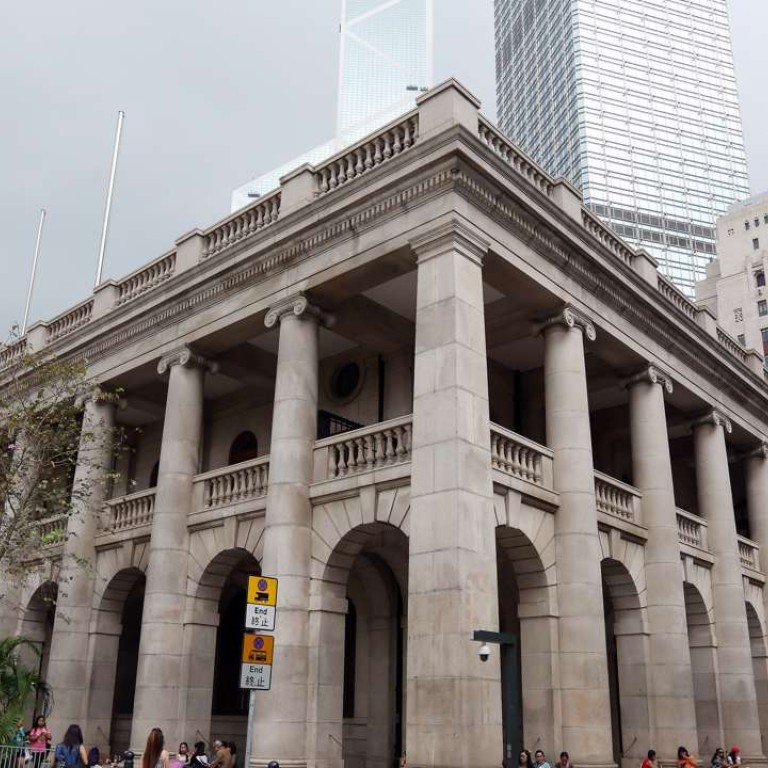
Transition of judicial authority since 1997 has proved a seamless Hong Kong success
Nineteen years after the handover, judgments remain immaculate, a situation that will hopefully endure after 2047
Next July, it will be 20 years since the Court of Final Appeal (CFA) superseded Britain’s Judicial Committee of the Privy Council (JC) as our ultimate appellate body.
The number of practitioners who, before 1997, appeared with any regularity before the JC, at the Privy Council offices at 9 Downing Street in London, having successfully negotiated the formidable security gates protecting No 10, has, inevitably, dwindled. People sometimes ask how the CFA compares with its predecessor, and there are certainly similarities.
In 1997, I participated in a unique double. In June, representing the Crown (with John Reading), I conducted the last criminal case from Hong Kong to be heard by the JC, involving a senior police officer who wished to challenge his conviction for indecent assault. Had leave to appeal been granted, the case, under a transitional arrangement, would have gone to the CFA for adjudication, as its very first appeal.
In September, this time representing the Hong Kong SAR (with Patrick W.S. Cheung), I conducted the first criminal case to go before the CFA, involving a challenge to a common assault conviction. Although leave to appeal was denied in both cases, I cannot, alas, claim too much credit, having been called on to address their lordships on neither occasion.
In both places, counsel experience nerves while waiting for the appeal to start, which is no bad thing, as the adrenaline enhances performance. In the JC, both sets of counsel would wait in an oak-panelled antechamber, until the usher bellowed “counsel please”, whereupon, through their respective entrances, they hurriedly entered the chamber. Inside, the five law lords, in lounge suits, looking suitably grave, waited patiently, while counsel sorted themselves out.

In the CFA, however, it is counsel who await the arrival of the judges, who solemnly enter the chamber in their judicial attire.
In the JC, counsel, when making submissions, moved to a lectern directly facing the law lords, standing in splendid isolation. Sometimes, the questions followed anticipated lines, but at other times they went off at a tangent, calling for quick thinking. Before attending the JC, I had not encountered the situation whereby junior counsel was invited to follow on from his or her leader, although the invitation was invariably declined, as the leader had, hopefully, covered all bases. On one occasion, however, the junior, who had conducted the murder trial in Hong Kong, was unhappy with his leader’s advocacy (a London QC), and, in desperation, insisted on speaking (to no effect, as it turned out), much to the leader’s chagrin.
In both places, the judges will have read the parties’ written cases, and counsel look for some early indication of areas requiring clarification, failing which they summarise their written submissions. The judges are, invariably, civility personified, and will forgive a lot, particularly if counsel has worked hard on the case and done his or her best. There is, however, an intolerance of shoddy preparation or muddled thinking, save, perhaps, with very junior counsel, overcome by the occasion. A rare flash of anger greeted the barrister who, opening his submissions in the CFA, inquired if their Lordships had “read the papers”, which was asking for trouble, as he undoubtedly realised in hindsight.
Perhaps the most striking similarity between the two bodies is the sheer quality of the justice dispensed. Each is manned by judges of great learning and wisdom, and the judgments, even in the most complicated cases, are invariably immaculate, representing the last word on the subject. The seamless transition from the JC to the CFA has been a huge success, undoubtedly helped by the involvement of overseas judges, some also members of the JC. The existing judicial arrangements will, hopefully, endure after 2047.
Grenville Cross SC is a criminal justice analyst

